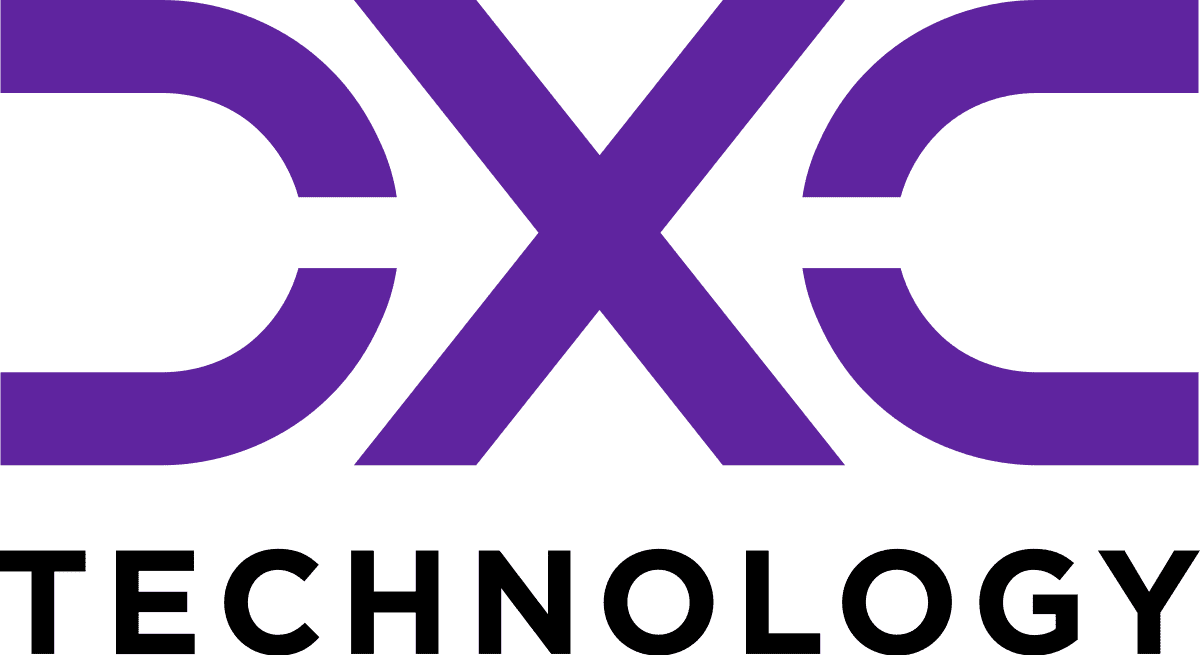IT or Tech implementation services help businesses adopt new software and systems. These services guide companies through the process of setting up and using new technology. A tech implementation service works with organizations to plan, customize, and roll out new digital tools effectively.
Good IT implementation services start by looking at a company’s needs. They figure out what the business wants to achieve. Then, they create a plan to set up the new tech. This plan includes steps like customizing the software and training staff.
These services aim to make tech changes smooth and successful. They help avoid common problems that can happen when adding new systems. With expert help, companies can start using new tech faster and get more value from it.
Understanding IT Implementation Services
IT implementation services help businesses put new technology to work. This can include hardware, software, and entire systems. These services ensure a smooth transition and maximize the benefits of the new technology.
What do IT Implementation Services Include?
IT implementation is more than just plugging in new equipment. It involves careful planning, execution, and support. Here are the key phases:
1. Planning and Assessment
This phase involves understanding the business needs and goals. Experts analyze existing systems and infrastructure. They design a solution that aligns with the organization’s requirements.
2. Design and Development
The new system is built or configured according to the design specifications. This may involve software development, hardware installation, and network configuration.
3. Testing
Rigorous testing ensures the system works as expected. This includes functional testing, performance testing, and security testing.
4. Deployment
The new system is rolled out to the organization. This can be done in phases or all at once. Data migration, user training, and change management are crucial during this phase.
5. Support and Maintenance
Ongoing support ensures the system continues to run smoothly. This includes troubleshooting, updates, and ongoing maintenance.
Benefits of Using IT Implementation Services
- Reduced risk: Experts handle the complex implementation process, minimizing disruptions and errors.
- Faster deployment: Experienced professionals can implement technology quickly and efficiently.
- Improved efficiency: Well-implemented technology can streamline processes and increase productivity.
- Cost savings: Proper planning and execution can help avoid costly mistakes and rework.
- Access to expertise: Implementation specialists have the knowledge and experience to handle complex projects.
Types of IT Implementation Services
| Service | Description |
| Software Implementation | Installing and configuring new software applications, including ERP, CRM, and custom software. |
| Hardware Implementation | Setting up new hardware, such as servers, workstations, and network devices. |
| Cloud Implementation | Migrating applications and data to cloud platforms like AWS, Azure, or Google Cloud. |
| Network Implementation | Designing and implementing new network infrastructure, including routers, switches, and firewalls. |
| Security Implementation | Implementing security solutions, such as firewalls, intrusion detection systems, and data loss prevention tools. |

Top 10 IT Implementation Service Providers
| Rank | Company | Key Services |
| 1 | Accenture | Digital transformation, cloud implementation, application modernization, cybersecurity |
| 2 | IBM | Hybrid cloud solutions, AI and automation, data analytics, cybersecurity |
| 3 | Tata Consultancy Services (TCS) | Digital transformation, cloud services, application development, cybersecurity |
| 4 | Cognizant | Digital engineering, cloud migration, data and AI, cybersecurity |
| 5 | Infosys | Digital transformation, cloud services, AI and automation, cybersecurity |
| 6 | Capgemini | Cloud services, digital transformation, data and AI, engineering services |
| 7 | Wipro | Cloud services, digital transformation, engineering services, cybersecurity |
| 8 | HCL Technologies | Digital transformation, cloud services, engineering services, cybersecurity |
| 9 | DXC Technology | Cloud services, IT modernization, security services, digital workplace solutions |
| 10 | NTT Data | Digital transformation, cloud services, data analytics, cybersecurity |
1. Accenture
Accenture is a global professional services company specializing in digital transformation, cloud, and security. They offer a wide range of IT implementation services, from strategy and consulting to deployment and support. Accenture’s industry expertise and focus on innovation make them a popular choice for large enterprises.
- Pros: Extensive experience, global reach, strong industry knowledge, focus on innovation.
- Cons: Can be expensive, large company with potential bureaucratic hurdles.
2. IBM

IBM is a technology giant with a long history of providing IT solutions. Their implementation services cover a broad spectrum, including hybrid cloud, AI, and data analytics. IBM’s strong focus on enterprise solutions and their established reputation make them a reliable choice for complex projects.
- Pros: Deep technical expertise, comprehensive solutions, strong reputation, global presence.
- Cons: Can be expensive, large company with potential for slower processes.
3. Tata Consultancy Services (TCS)
TCS is a global IT services and consulting company known for its agile and cost-effective solutions. They offer a wide range of implementation services, including digital transformation, cloud migration, and application development. TCS’s focus on customer satisfaction and their global delivery model make them a popular choice for businesses of all sizes.
- Pros: Cost-effective solutions, agile approach, strong customer focus, global delivery network.
- Cons: May not have the same depth of expertise in niche areas as some competitors.
4. Cognizant

Cognizant is a professional services company that helps clients modernize their technology, reimagine processes, and transform experiences. They offer a variety of IT implementation services, including cloud migration, digital engineering, and data analytics. Cognizant’s focus on innovation and their industry-specific solutions make them a good choice for businesses looking to stay ahead of the curve.
- Pros: Innovative solutions, industry expertise, focus on digital transformation.
- Cons: Can be expensive, may not have the same global reach as some larger competitors.
5. Infosys
Infosys is a global technology consulting and services company that helps clients navigate their digital transformation journey. They offer a wide range of IT implementation services, including cloud, AI, and automation. Infosys’s focus on sustainability and their commitment to innovation make them a good choice for organizations looking for a responsible and forward-thinking partner.
- Pros: Strong focus on innovation, commitment to sustainability, global delivery model.
- Cons: Can be expensive, may not have the same depth of experience in some industries as specialized competitors.
6. Capgemini
Capgemini is a global leader in consulting, technology services, and digital transformation. They offer a wide range of IT implementation services, including cloud, data, AI, and engineering. Capgemini’s collaborative approach and their focus on business outcomes make them a good choice for organizations seeking a partner to help them achieve their strategic goals.
- Pros: Collaborative approach, focus on business outcomes, strong expertise in various technologies.
- Cons: Can be expensive, large company with potential bureaucratic challenges.
7. Wipro
Wipro is a global technology services and consulting company that helps clients leverage digital technologies to achieve their business objectives. They offer a variety of IT implementation services, including cloud, digital transformation, and engineering. Wipro’s focus on customer satisfaction and their agile approach make them a good choice for businesses seeking a flexible and responsive partner.
- Pros: Agile approach, strong customer focus, cost-effective solutions.
- Cons: May not have the same brand recognition as some larger competitors.
8. HCL Technologies
HCL Technologies is a global technology company that helps enterprises reimagine their businesses for the digital age. They offer a wide range of IT implementation services, including cloud, engineering, and digital transformation. HCL’s focus on innovation and their “ideapreneurship” culture make them a good choice for organizations seeking a partner that can help them drive disruption and growth.
- Pros: Innovative solutions, focus on “ideapreneurship”, strong engineering capabilities.
- Cons: May not have the same global reach as some larger competitors.
9. DXC Technology

DXC Technology is a global IT services company that helps clients modernize and integrate their IT systems. They offer a variety of implementation services, including cloud, security, and digital workplace solutions. DXC’s focus on enterprise technology and their experience in managing complex IT environments make them a good choice for large organizations with legacy systems.
- Pros: Strong expertise in enterprise technology, experience with complex IT environments, focus on modernization.
- Cons: May not be as agile as some smaller competitors, can be expensive.
10. NTT Data
NTT Data is a global IT services provider that offers a wide range of implementation services, including cloud, data analytics, and digital transformation. They have a strong presence in various industries, including healthcare, financial services, and manufacturing. NTT Data’s focus on customer experience and their global delivery network make them a good choice for organizations seeking a reliable and scalable partner.
- Pros: Global reach, strong industry expertise, focus on customer experience.
- Cons: May not be as agile as some smaller competitors, can be expensive for smaller projects.
Key Takeaways
- Tech implementation services guide businesses in adopting new software
- These services create plans to set up and customize new technology
- Expert help can make tech changes smoother and more successful
Understanding Tech Implementation Services
Tech implementation services help businesses adopt new technologies smoothly. These services cover planning, setup, and ongoing support to ensure successful tech rollouts.
Defining Technology Implementation
Technology implementation services guide companies through the process of adding new tech to their operations. This includes:
- Planning and strategy
- System setup and configuration
- Data migration
- Integration with existing tools
These services aim to minimize disruption and maximize the benefits of new technology. They often involve customizing solutions to fit a company’s specific needs.
Experts work closely with businesses to ensure the new tech aligns with their goals. This helps companies avoid common pitfalls and get the most value from their investment.
The Role of Support and Training in Implementation
Support and training are key parts of tech implementation. They help employees learn to use new systems effectively.
Training programs can include:
- Hands-on workshops
- Online courses
- User guides and manuals
Good support ensures quick problem-solving when issues arise. This keeps productivity high during the transition.
Ongoing support also helps companies adapt to updates and changes in the technology. This ensures long-term success and prevents tech from becoming outdated.
Importance of Stakeholder Engagement
Stakeholder engagement is crucial for successful tech implementation. It involves getting buy-in from everyone affected by the new technology.
Key steps in stakeholder engagement include:
- Identifying all stakeholders
- Communicating the benefits of the new tech
- Addressing concerns and questions
- Involving stakeholders in decision-making
Clear communication helps reduce resistance to change. It also ensures the new technology meets the needs of all users.
Engaging stakeholders early and often leads to higher user adoption rates. This, in turn, increases the overall success of the implementation project.
Strategies for Effective Tech Implementation
Successful tech implementation requires careful planning and execution. Key strategies include developing a solid plan, managing data securely, ensuring scalability, and leveraging cloud technologies.
Developing a Robust Implementation Plan
A strong implementation plan is crucial for tech success. Start by setting clear goals and timelines. Break the project into smaller, manageable steps. Set milestones to track progress and keep the team on track.
Create a detailed timeline with specific dates for each task. This helps everyone stay organized and accountable. Include buffer time for unexpected issues that may pop up.
Assign roles and responsibilities to team members. Make sure everyone knows what they need to do and when. Regular check-ins can help spot and fix problems early.
Test the new tech thoroughly before full rollout. This can catch bugs and ensure smooth operation when it goes live.
Ensuring Data Management and Security
Data is a key asset. Protect it well during tech changes. Create a solid plan for data migration. This helps avoid loss or corruption of important info.
Use strong encryption to keep data safe. Set up access controls so only the right people can see sensitive data. Regular backups are a must to prevent data loss.
Train staff on data security best practices. This includes using strong passwords and spotting phishing attempts. Make sure everyone knows how to handle data safely in the new system.
Consider hiring a data security expert to review your plans. They can spot weak points you might miss.
Emphasizing Scalability and Flexibility
Choose tech that can grow with your business. Scalable solutions save time and money in the long run. They adapt to changing needs without major overhauls.
Look for systems that integrate well with other tools. This flexibility lets you add new features as needed. It also helps different parts of your business work together smoothly.
Consider modular systems. These let you add or remove parts as your needs change. This can be more cost-effective than replacing entire systems.
Plan for future growth from the start. This might mean choosing more powerful hardware or cloud services that can easily scale up.
Adopting Cloud Technologies
Cloud adoption can boost efficiency and cut costs. It offers flexible resources that grow with your needs. Popular options include AWS and Google Cloud.
Cloud tech lets teams work from anywhere. This can improve productivity and collaboration. It also makes it easier to recover from disasters.
Start your cloud journey with a clear strategy. Decide which apps and data to move first. Train staff on new cloud tools to ensure smooth adoption.
Consider a multi-cloud approach for added flexibility. This lets you use the best features from different providers. It can also help avoid vendor lock-in.
Use cloud management tools to keep track of resources and costs. This helps prevent surprise bills and ensures you’re using cloud services efficiently.







